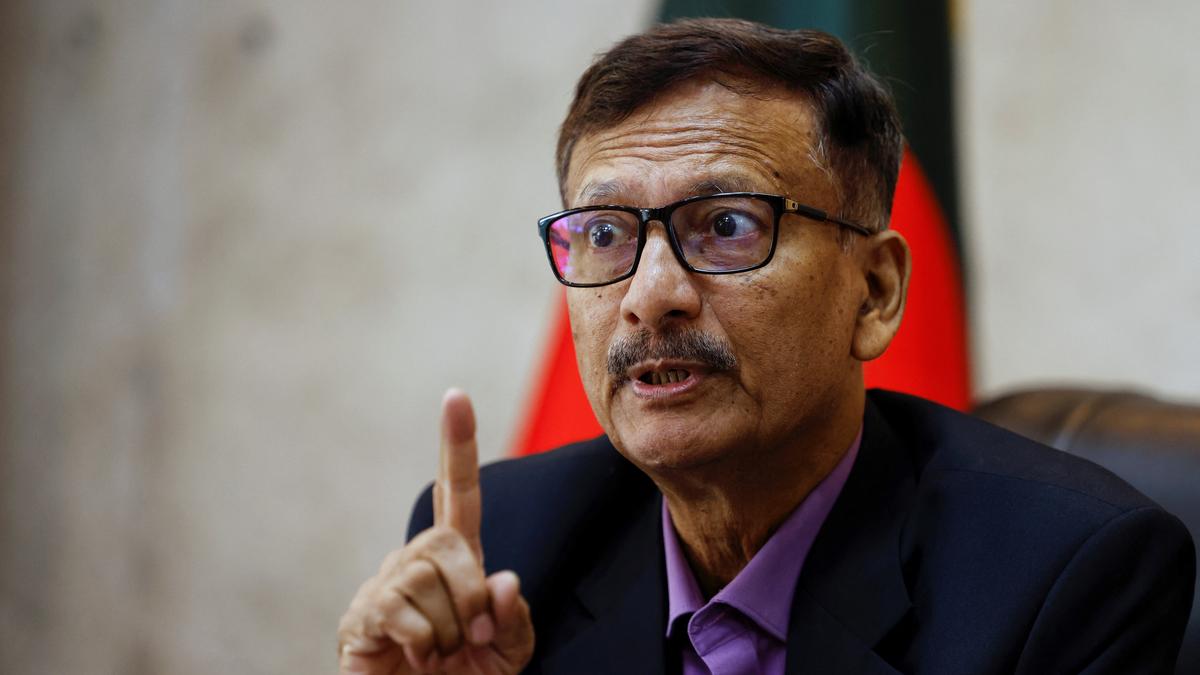Bangladesh and China: Strengthening Ties Amidst Political Change
In a surprising turn of events, Bangladesh's interim government is sending high-level officials to China, signaling a renewed commitment to the strengthening of diplomatic ties. This visit comes on the heels of significant political upheaval in Bangladesh, marking a critical moment in the relationship between the two nations. What does this mean for the future of bilateral relations, and what are the potential implications for regional stability? Let's delve into the details.
A High-Stakes Visit to China
Advisor for Foreign Affairs Touhid Hossain's visit to China represents the highest-level engagement from the interim government. This visit carries immense significance, especially considering the political transition in Bangladesh following massive public protests and the subsequent change of government. The meeting with Chinese Foreign Minister Wang Yi promises to be a crucial one. Both sides aim to address important matters including trade and investment, further collaboration in various fields, and potentially, navigating the complexities of the post-Hasina era in Bangladesh.
Building Bridges: Political Trust and Economic Cooperation
Hossain's visit isn't simply a diplomatic courtesy. It's a calculated move reflecting Bangladesh's determination to foster closer relations with China. This strengthening relationship centers around mutual trust and deeper collaboration, especially within the framework of the Belt and Road Initiative (BRI). The BRI, a sprawling infrastructural project spearheaded by China, offers Bangladesh enormous opportunities in economic growth and sustainable development. Mr. Hossain's talks will likely focus on cementing this economic partnership through mutually beneficial investments and trade agreements.
Navigating Challenges: Maintaining Regional Stability
This diplomatic maneuver is strategically timed amidst a period of uncertainty for Bangladesh. China's demonstrated willingness to engage with multiple parties within Bangladesh - both the opposition and certain factions of the previous government - underscores the importance China places on stability in the region. The dialogue between Hossain and Wang Yi will likely delve into how both nations can collaboratively maintain peace and development in the wake of recent political shifts, ensuring continued stability in the region.
China's Perspective: A Steady Hand in Uncertain Times
China's response to the evolving political landscape in Bangladesh indicates their focus on a long-term perspective. China's unwavering support, in terms of diplomatic engagement with various parties in Bangladesh, and statements supporting stronger partnerships showcase China's pragmatism. Their approach seeks to create a harmonious pathway for long-term partnership regardless of the domestic political scene within Bangladesh.
Steady Engagement: China's Strategic Patience
Instead of waiting for the dust to settle, China engaged early on with the new political reality. They hosted visits from both opposition parties and representatives from Bangladesh’s Islamist parties. This balanced approach shows that China remains flexible in navigating the evolving landscape of Bangladeshi politics while showing a clear interest in the progress and well-being of Bangladesh.
Investing in Bangladesh's Future: Economic opportunities amidst change
China's strategy includes consistent economic engagement with Bangladesh. Regardless of internal developments, economic opportunity remains high on the agenda. This continuity demonstrates China’s belief in the value of cooperation with Bangladesh and the long-term potential of investing in its economic future. Investment continues even through politically turbulent times.
Beyond the Visit: Long-Term Implications
This visit between Hossain and Wang Yi should not be looked at in isolation. Rather it must be considered within the context of the broader strategic partnership between China and Bangladesh. The long-term implications are multifaceted. There’s the enhancement of bilateral ties through mutual trust, stronger engagement in regional diplomacy, and solidified economic collaborations.
Securing the future: Trade and infrastructure development
The Belt and Road Initiative provides a significant platform for sustained economic engagement. This framework helps to not only expand infrastructure development projects but also opens gateways to increased trade between both nations. It signifies a firm commitment to continued development for the economic well-being of both countries.
Strengthening Partnerships: A long term vision for stability and prosperity
Through consistent communication and high-level meetings like this, China and Bangladesh are actively investing in their relationship, creating stronger bonds built on mutual trust and economic exchange. This focus is designed to bring long-term prosperity and stability to both nations. The investment demonstrates a shared interest in securing the future for generations to come.
Take Away Points
- The visit of Bangladesh's foreign affairs advisor to China signals a deepening strategic partnership.
- Both countries are committed to enhancing political mutual trust and deepening economic ties, particularly through the Belt and Road Initiative.
- China’s active engagement with multiple actors in Bangladesh highlights its emphasis on stability in the region.
- The long-term implications for this collaboration hold great significance for the growth and stability of both countries.




